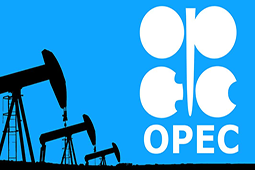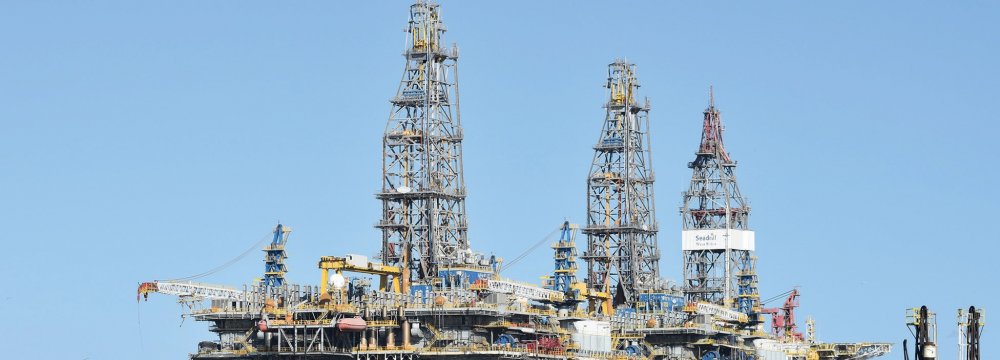
OPEC Trying to Maintain Oil Market Balance, Not Please Donald Trump


"We are not going to respond to political needs," Mazrouei, who holds the rotating OPEC presidency this year, told S&P Global Platts.
"We will do what is right for maintaining balance in supply and demand. Anything else is not our job. Our job is not to keep prices low or raise the prices, our job is to maintain balance in the market, but not be oversupplied or undersupplied."
OPEC and its allies are considering cutting output, with a key monitoring committee on Sunday saying a potentially weak market in early 2019 may require reversing a 1 million bpd production increase agreed in June. Saudi Arabia, a key US ally, said it would cut its crude exports unilaterally by 500,000 bpd in December, ahead of any OPEC policy decision.
That drew a tweet from Trump late Monday: "Hopefully, Saudi Arabia and OPEC will not be cutting oil production. Oil prices should be much lower based on supply!"
Trump has tweeted at OPEC several times over the past year to pump more crude, accusing the organization of manipulating its production to keep oil prices artificially high. But many OPEC officials have pointed to Trump's reinstatement of sanctions on Iranian crude sales for contributing to fears of a tight market ahead.
Beyond Control
"Geopolitics do not help sometimes, but we cannot respond to heads of state comments on things that are outside our control," Mazrouei said.
OPEC's 15 members pumped 33.04 million bpd in October, according to the latest Platts OPEC production survey -- about one-third of global supply.
For the last two years, the organization has teamed up with Russia and nine other non-OPEC producers to institute output cuts that are now being unwound.
Saudi energy minister Khalid al-Falih said demand for his country's crude oil has tapered off, amid growth in supplies from the US, Russia and other producers, as well as seasonal waning demand.
"Saudi Arabia does not arbitrarily cut," Falih said Monday at the ADIPEC oil conference in Abu Dhabi. "I think customers are stopping the need to build inventories.
Their demand in December declined by over half a million [bpd] compared to November. We happily obliged because we don't want to see inventories build up."
Oil prices fell more than 1% on Tuesday, with benchmark Brent crude slipping below $70 per barrel and US crude under $60, after Trump put pressure on OPEC not to cut supply to prop up the market.


Trump weighs using $2 billion in CHIPS Act funding for critical minerals

Codelco cuts 2025 copper forecast after El Teniente mine collapse

Electra converts debt, launches $30M raise to jumpstart stalled cobalt refinery

Barrick’s Reko Diq in line for $410M ADB backing

Abcourt readies Sleeping Giant mill to pour first gold since 2014

Nevada army depot to serve as base for first US strategic minerals stockpile

SQM boosts lithium supply plans as prices flick higher

Viridis unveils 200Mt initial reserve for Brazil rare earth project

Tailings could meet much of US critical mineral demand – study

Kyrgyzstan kicks off underground gold mining at Kumtor

Kyrgyzstan kicks off underground gold mining at Kumtor

KoBold Metals granted lithium exploration rights in Congo

Freeport Indonesia to wrap up Gresik plant repairs by early September

Energy Fuels soars on Vulcan Elements partnership

Northern Dynasty sticks to proposal in battle to lift Pebble mine veto

Giustra-backed mining firm teams up with informal miners in Colombia

Critical Metals signs agreement to supply rare earth to US government-funded facility

China extends rare earth controls to imported material

Galan Lithium proceeds with $13M financing for Argentina project

Kyrgyzstan kicks off underground gold mining at Kumtor

Freeport Indonesia to wrap up Gresik plant repairs by early September

Energy Fuels soars on Vulcan Elements partnership

Northern Dynasty sticks to proposal in battle to lift Pebble mine veto

Giustra-backed mining firm teams up with informal miners in Colombia

Critical Metals signs agreement to supply rare earth to US government-funded facility

China extends rare earth controls to imported material

Galan Lithium proceeds with $13M financing for Argentina project

Silver price touches $39 as market weighs rate cut outlook

















